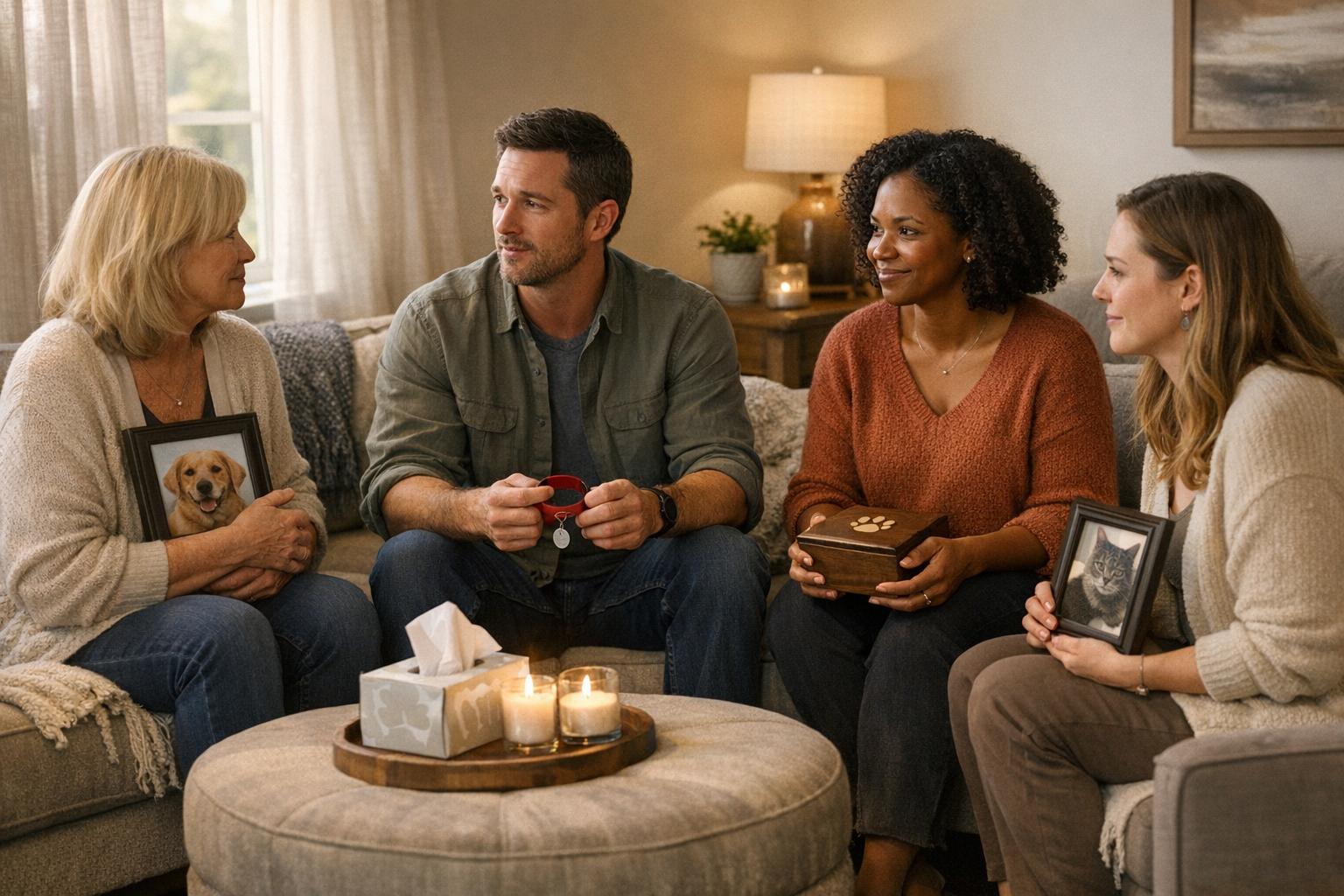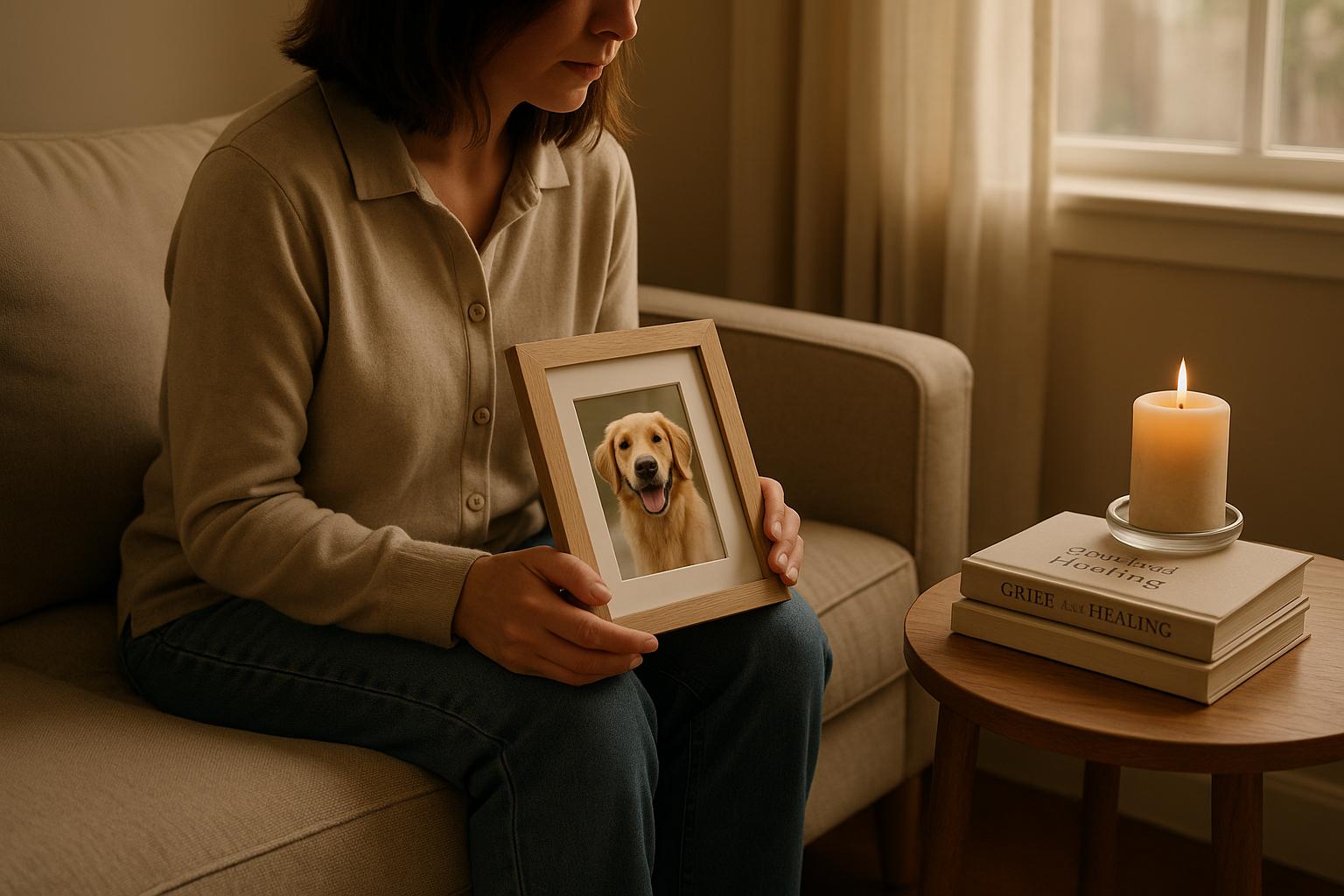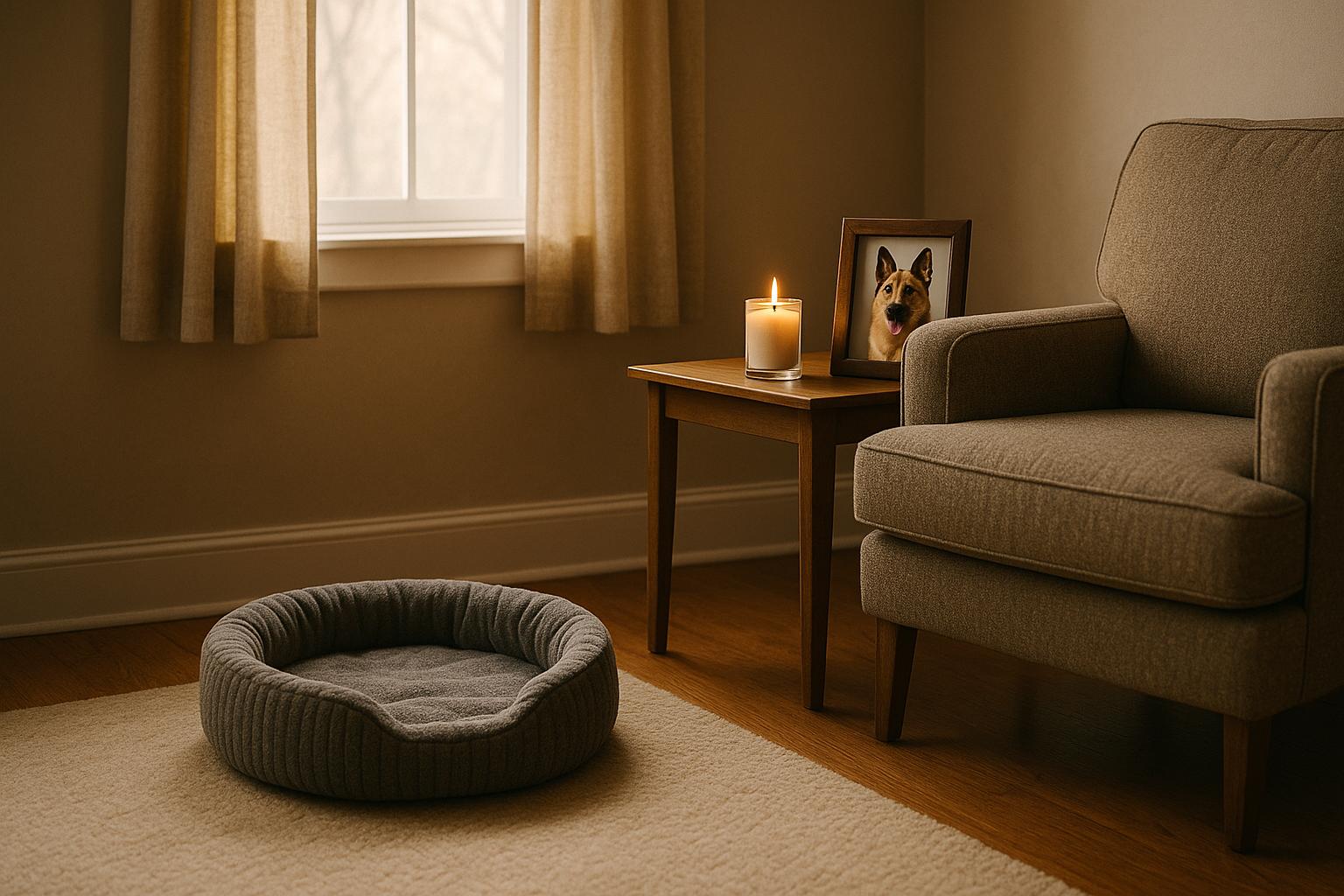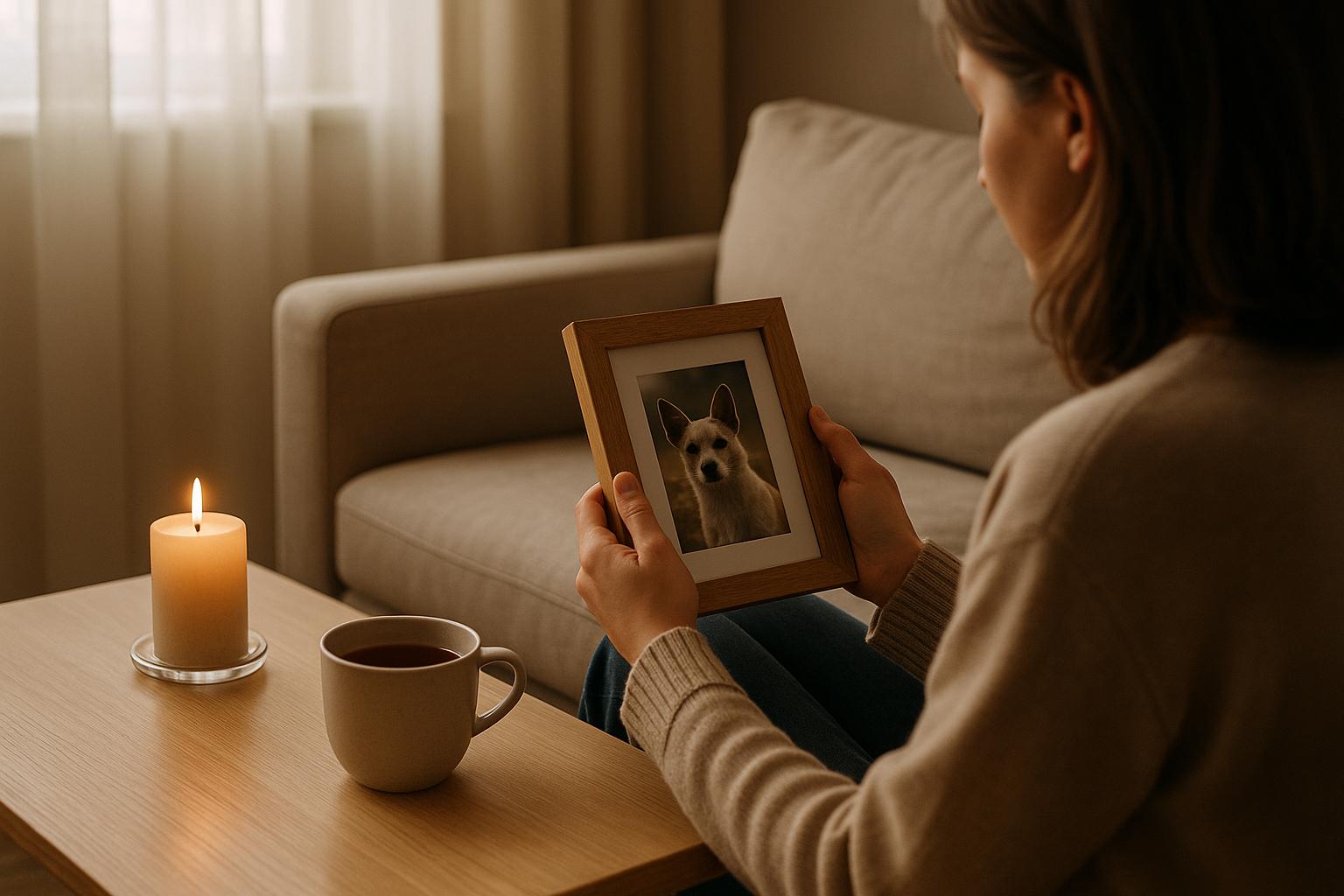When a beloved pet passes, you may wonder what happens next in the cremation process. Typically, dogs are not shaved before cremation, as their fur does not affect the cremation itself. Understanding this can help ease your concerns during a difficult time, allowing you to focus on honoring your pet's memory.
At Animal Aftercare, we prioritize the dignity and care of your pet throughout the entire process. Our compassionate team is available 24/7 for pet and equine cremation and euthanasia, ensuring you have the support you need when it matters most. You can trust that your pet will be handled with the utmost respect and professionalism.
Understanding the cremation process can provide comfort in a trying time. By knowing what to expect, you can make more informed choices for your beloved companion.
Understanding Pet Cremation
Pet cremation is a respectful option for handling the remains of your beloved animal. This process can provide closure while honoring your pet's memory. Familiarizing yourself with the cremation process and the types available will help you make informed decisions during a difficult time.
Pet Cremation Process
The pet cremation process begins after your pet has passed away. Primarily, identification verification ensures the body is accurately tracked throughout. A metal tag with a unique identification number is attached to your pet.
Before cremation, staff remove any non-combustible items, like collars or medical implants. Your pet is then placed in a cremation container made from combustible materials such as cardboard or wood.
In most cases, the body is subjected to high temperatures (around 1400-1800 degrees Fahrenheit) in a specialized chamber, known as a cremator. This intense heat reduces the remains to ash, completing the process. Afterward, the ashes are processed and can be placed in an urn or container for you to keep.
Types of Pet Cremation
There are several types of pet cremation services available to suit your needs. You may choose between communal cremation, private cremation, or partitioned cremation.
- Communal Cremation: In this option, multiple pets are cremated together. The ashes are not returned to the owners, but instead, they may be scattered in a designated area or disposed of by the crematorium.
- Private Cremation: This type ensures that your pet is the only one cremated in the chamber. The ashes are returned to you in a container of your choice, allowing for a personal memorial.
- Partitioned Cremation: This method involves cremating multiple pets in the same chamber, but with barriers placed between them. You receive your pet's individual ashes without the concern of mixing.
Choosing Animal Aftercare as your provider means you will have access to 24/7 Pet and Equine Cremation and Euthanasia services, ensuring that compassionate support is always available during such a challenging time.
Dog Cremation Procedures
Understanding the specific procedures involved in dog cremation is essential for pet owners. This section outlines the preparation steps and how the cremation chamber functions to ensure a respectful process.
Preparation Before Cremation
Before the actual cremation, important preparations take place. You will need to gather all necessary paperwork, such as veterinary records and any cremation authorization forms. This documentation helps streamline the process and provides the crematory with vital information about your pet.
Some facilities, including Animal Aftercare, may offer options for paw prints or hair clippings, which can be a cherished keepsake. It's important to ask for these items before your pet is transferred.
Additionally, discuss with the crematory whether you prefer a private or communal cremation, as this can impact both the experience and the cost. Knowing your choices allows you to make informed decisions during a difficult time.
Cremation Chamber Operation
The cremation chamber is specifically designed to handle the cremation process efficiently. Typically, it reaches high temperatures ranging from 1400 to 1800 degrees Fahrenheit, which ensures complete cremation.
Once your pet is in the chamber, the process begins. The chamber's technology carefully regulates the temperature and airflow, promoting optimal combustion. This ensures that the remains are reduced to ash in a respectful manner.
After the cremation is complete, the ashes are collected and processed. This is where you can choose to have your pet's ashes returned to you in a decorative urn. Animal Aftercare is available 24/7 to navigate this process with compassion and care, providing you with support during this emotional time.
After Cremation
After the cremation process, you’ll face important decisions regarding the handling of your pet's cremains and how to memorialize their memory. Understanding your options can help you honor your beloved pet in a meaningful way.
Handling Cremains
Once the cremation is complete, you will receive your pet's cremains, which may be referred to as ashes or cremated remains. These typically come in a container provided by the crematorium or a custom urn that you select.
If you choose to keep them at home, consider a dedicated space where you can place the urn. Many people prefer to display their pet's ashes in a special dog cremation urn that reflects your pet's personality.
It's also possible to create a paw print impression before the cremains are returned to you, often serving as a cherished keepsake. Animal Aftercare offers personalized options to help you handle memorial remains compassionately.
Memorialization Options
There are several meaningful ways to memorialize your pet after cremation. Many pet owners opt for decorative urns that can complement their home decor.
You might also consider creating a memory garden, incorporating your pet's favorite items or plants. This can become a peaceful space to remember your furry friend.
Other options include memorial jewelry that contains a small portion of the ashes, or customized plaques and stones that feature your pet's name. Whatever your choice, remember that memorializing your pet allows you to celebrate the bond you shared. At Animal Aftercare, we support you in creating lasting memories and provide compassionate care every step of the way.
Costs and Services
When considering pet cremation, it's essential to understand the associated costs and the various services available. Each decision impacts both your finances and the level of care you choose for your beloved pet.
Understanding Cremation Costs
The cost to cremate a dog typically ranges from $50 to $250 or more. Factors influencing these prices include:
- Size and Weight: Larger dogs require more resources, affecting the final price.
- Type of Cremation: Options include private, semi-private, or communal cremation. Private is usually more expensive due to exclusivity.
- Location: Prices may vary based on geographic areas and local veterinary practices offering the service.
Additional services may involve memorial items or transportation fees, which can increase overall costs. Engaging with a reputable pet cremation service ensures clarity regarding all expenses. At Animal Aftercare, we offer transparent pricing and compassionate guidance throughout the process.
Selecting a Cremation Service
Choosing the right cremation service is crucial for honoring your pet. Look for a provider that offers:
- Availability: 24/7 services are essential. Animal Aftercare operates around the clock to cater to your needs at any time.
- Reputation: Research reviews and testimonials to gauge the quality of service.
- Facility Standards: Ensure the crematorium meets high hygiene and operational standards.
Contact your local veterinary practice for recommendations, as they often work closely with trusted pet crematoriums. It’s important to ask about the specifics of each service, including the handling of remains and any aftercare options available.
Coping with Loss
Dealing with the loss of a pet can be a profound and emotional experience. It is essential to understand the grieving process and options like home euthanasia that can help ease that transition.
The Grieving Process
The grieving process is unique to each individual. You may experience a range of emotions including sadness, anger, and even guilt. The first step is to recognize and accept these feelings as part of your healing journey.
You might find it helpful to talk about your loss with friends, family, or a support group. Keeping a journal can also provide a space to express your emotions and reflect on fond memories.
Memorializing your pet can be an important aspect of coping. Consider creating a scrapbook, planting a tree in their memory, or commissioning a piece of art that represents your bond. These acts can help honor their life and bring comfort during difficult times.
Home Euthanasia Consideration
Home euthanasia allows your pet to pass in a familiar environment, surrounded by loved ones. This option can reduce stress for both you and your pet, as it often feels more peaceful than a clinical setting.
Opting for this service can be emotionally overwhelming. Having a compassionate provider like Animal Aftercare available 24/7 means you receive support throughout this challenging time. They handle all aspects sensitively and respectfully, ensuring your pet is treated with dignity.
Discussing your wishes with your veterinarian before the time comes can provide clarity. Understanding what to expect can ease anxiety and allow you to focus on saying goodbye.







